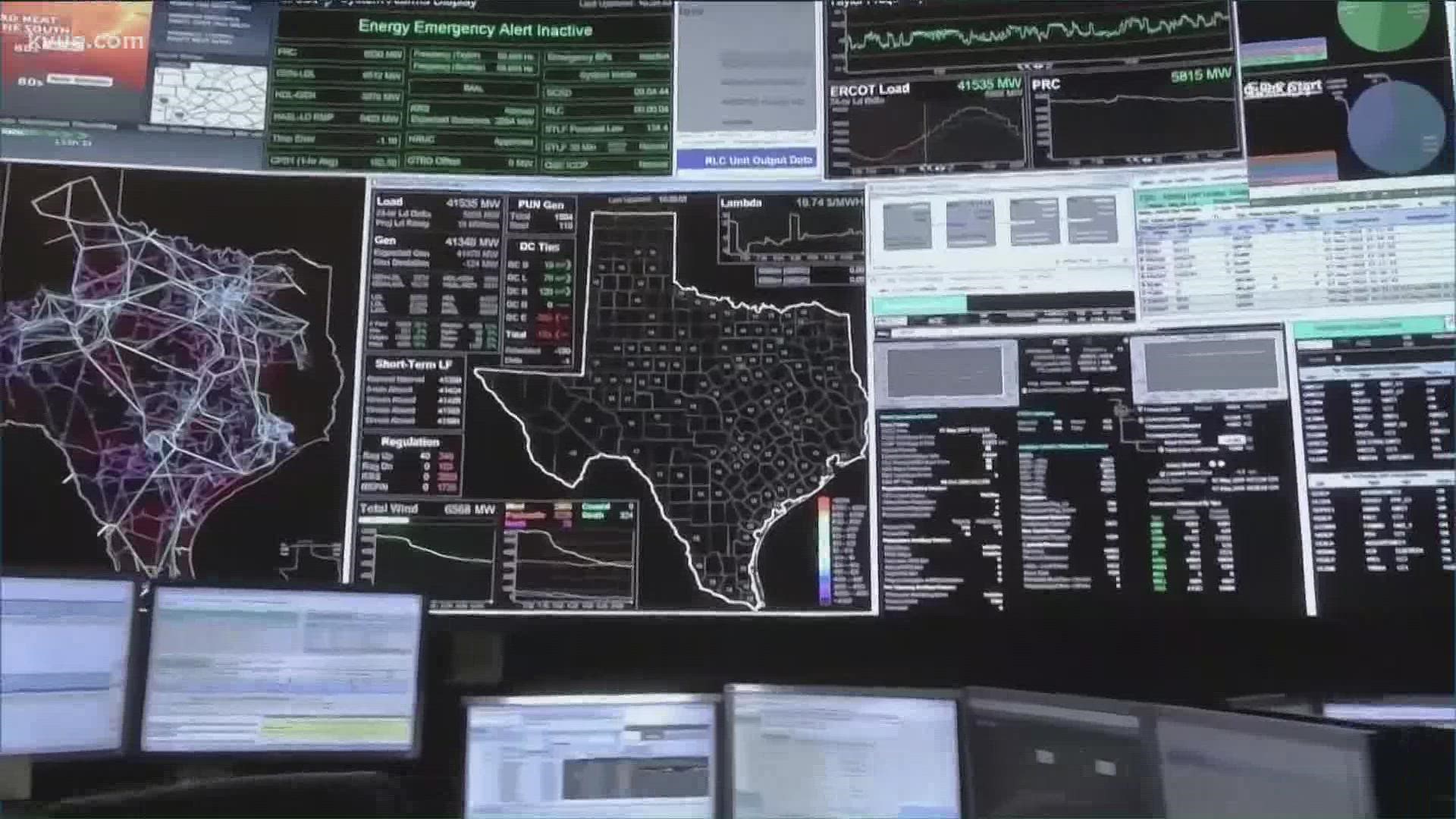AUSTIN, Texas — Is the Texas power grid ready for summer 2022 heat?
It's the question on everyone's mind as ERCOT sends periodic notices to the public urging Texans to conserve energy as the state undergoes an early heatwave. And, on Friday, six power generation facilities tripped offline, prompting ERCOT to again ask Texans to conserve power.
On May 17, ERCOT and the Public Utility Commission of Texas spoke to the public about whether the Texas power grid is ready for the summer heat.
PUC Chairman Peter Lake said they will have more reserves than before and will operate with an abundance of caution to keep the grid reliable. He said last week Texas had record-breaking demand with high temperatures and that it was a good test for them.
"All the reforms are working," he said "The lights are going to stay on this summer. And thank you for playing your part in ensuring grid reliability. We're all part of this together and reforms are working."
"I frankly don't share his level of confidence," said Alison Silverstein, a former PUC staffer from the late 1990s and a Federal Energy Regulatory Commission employee during George W. Bush's first term. "There's a couple reasons – reliability and keeping the grid honest about several factors, and one of those is, do you have enough resources? And the other is how high is demand? And in Texas in particular, demand is driven in large part by weather."
Regarding Friday's communications to the public, ERCOT's interim CEO said they want to better communicate what is a conservation request and what is a conservation alert. He also said they could better share when the conservation is no longer needed.
KVUE's Conner Board asked why the six power generators went offline. The leaders said detailed information will be shared on Thursday, but said the first outage happened just after noon, which is near peak demand time. Despite this, we didn’t reach “alert” status. The final generator trip was around 4 p.m., according to ERCOT, and the call for conservation was made around 5 p.m. on Friday. ERCOT said those units did return over the weekend.
Watch the press conference on KVUE's YouTube channel:
ERCOT Interim CEO Brad Jones said that, last year, Texas had 15-16% reserves. This year, we have about 22%. He said so far this month, ERCOT has handled the unusually high temperatures well.
"Texas doesn't have a capacity problem," Silverstein said. "They're right about that. Texas has a capacity-that-don't-show-up problem. And what that means is we have too many power plants that are breaking when we need them the most or that they can't get enough gas or that, as somebody has as some of the renewable opponents point out, the wind doesn't always blow."
Silverstein added Texas needs to improve supply, but said a possibly quicker solution would be helping the demand side with improved efficiency.
"The costs of us not fixing the demand side could be huge, and the costs of us not fixing this demand side soon relative to waiting for all of the changes that the chairman and PUC are working on, those are all great changes. Many of them need to be made, not all of them," Silverstein said. "We can do a lot to protect the grid without waiting for new power plant construction or new transmission construction."
According to a seasonal assessment report dated May 16 from ERCOT, ERCOT is expected to have sufficient installed generating capacity to serve peak demands in the upcoming summer season, June through September. The company expects that peak demand this summer will be more than 77,000 megawatts, and ERCOT anticipates that there will be more than 91,000 megawatts of capacity available to cover that.
RELATED: Discussion: How will the bills passed by the Texas Legislature help the state's power grid?
Following the 2021 February freeze, the Texas Legislature passed two bills to protect the power grid, both of which Gov. Greg Abbott signed into law.
One essentially overhauled ERCOT and the state public utility commission to step up oversight and change the rules about who can be on ERCOT's board. The other creates a statewide power outage alert system and requires power generators to weatherize their facilities. If they don't, those plants could face fines of up to $1 million.
PEOPLE ARE ALSO READING:

